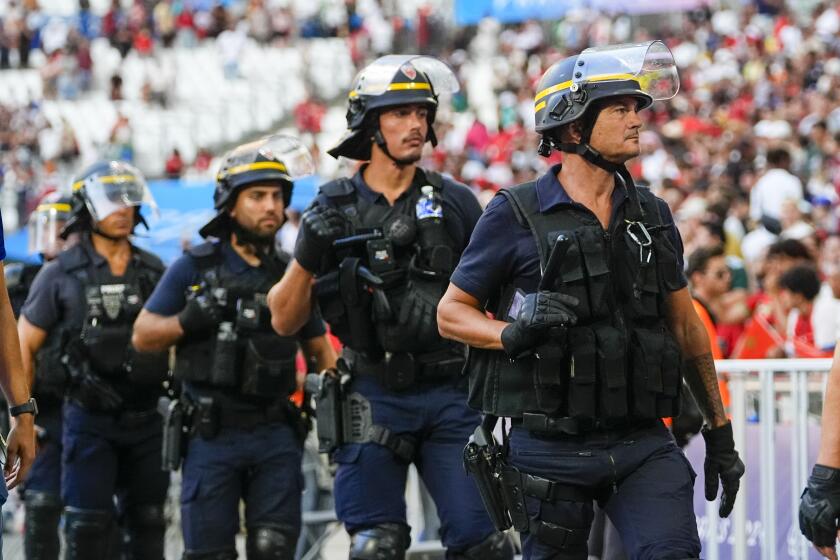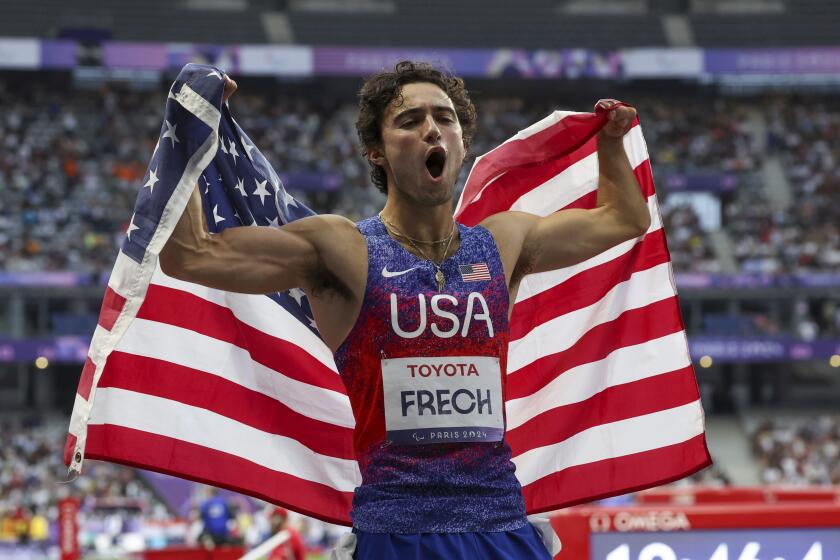A rough practice for Czisny
An unexpected fall on relatively easy footwork by Robin Szolkowy didn’t keep him and partner Aliona Savchenko from defending their pairs world championship Wednesday night at Staples Center.
The Germans, dancing to music from the movie “Schindler’s List,” had completed their difficult opening jump combinations and throws before Szolkowy lost his footing, but when they ended their program with a difficult throw triple salchow the crowd was appreciative. Combined with their leading short program scores, the pair had a total of 203.48.
Finishing second, far behind with 186.52 points, were Dan Zhang and Hao Zhang of China, who were third after the short program and who had been third at last year’s world championship.
The bronze medalists were Russians Yuko Kavaguti and Alexander Smirnov with a score of 186.39.
The highlight of the earlier groups was the rousing and rowdy rendition to the “Spartacus” movie soundtrack by rookie couple Caydee Denney of Wesley Chapel, Fla., and Jeremy Barrett of Bradenton, Fla.
Their skate earned a score of 104.10 and Barrett said this wasn’t his first standing ovation but it was the best. “We got one at nationals,” he said, “but nothing quite like that. It was amazing.”
It was in sharp contrast to the other American pair, national champions Keauna McLaughlin of Tarzana and Rockne Brubaker of St. Louis.
Their score of 90.12 was over 15 points lower than their season’s best of 115.67 and guaranteed the U.S. would earn only two pairs spot at next year’s Olympics after their 11th-place finish.
The plus side
Evan Lysacek was thrilled his triple axel in the short program actually earned a plus-one from the judges. When he was reminded of the score on that element, Lysacek beamed.
“That’s been the biggest area of our concentration this season, and I’ve had everyone you can think of come out and look at what’s wrong with the axel and why I was getting downgraded and getting negatives,” he said.
Apparently, the flaw had to do with the limited camera angles available to the judges.
--
lisa.dillman@latimes.com
More to Read
Go beyond the scoreboard
Get the latest on L.A.'s teams in the daily Sports Report newsletter.
You may occasionally receive promotional content from the Los Angeles Times.






